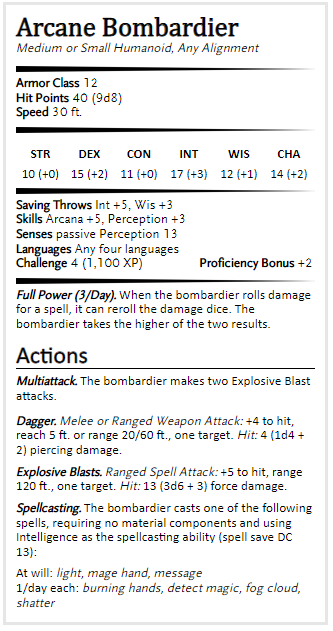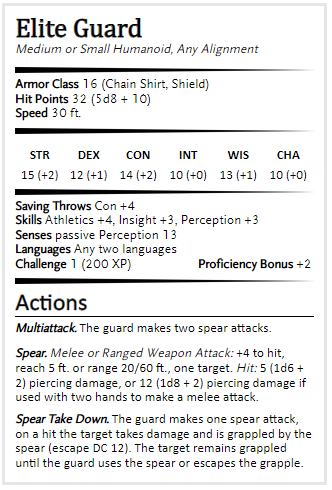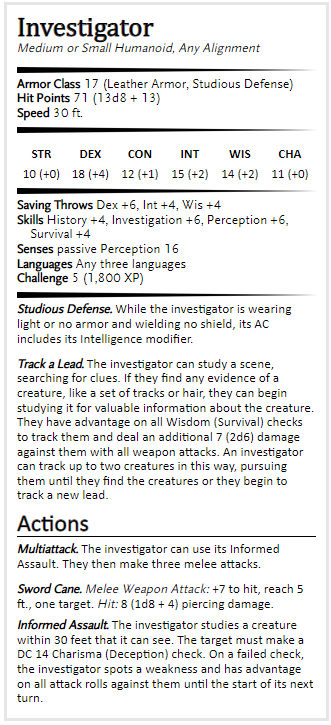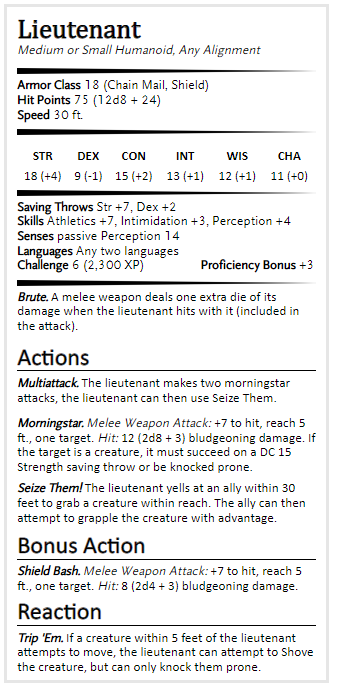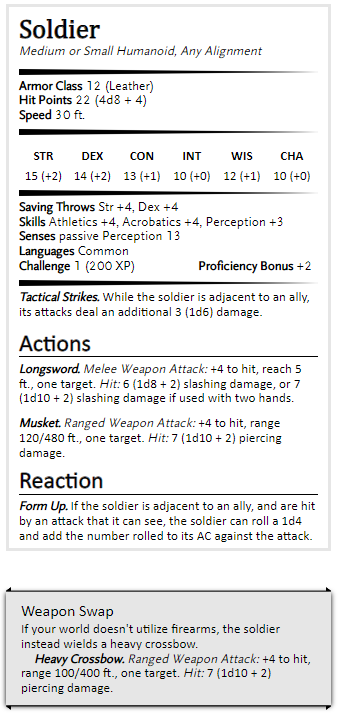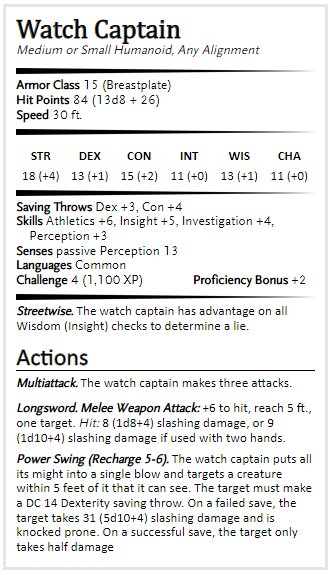The Ferrum Watch - Factions & Adversaries
Header Art: Keelmen Heaving in Coals (1835) by J. M. W. Turner
This post provides information on the Ferrum Watch, the guards and protectors of the city of Ferrum located on the world of Talia. This Watch can exist in any city, simply taking their organizational structure and stat blocks provided at the end of this article. For more information about Talia, you can check out our free supplements Neiko's Primer to Talia and Ferrum, the Canal City. In addition, they are a major focus of our Gangs of Ferrum adventure series, a three book adventure where the party must form their own gang and fight against rival gangs and the city itself to survive.
Laws of the City
Laws and the Ferrum Watch are tools of the ruling aristocracy to impose their order and values on a city that they supposedly protect, at least, that’s how many criminals see the laws. If the laws were simply fairer, or if the Watch didn’t assume you were breaking a law just for having slightly different customs, there would be a lot less crime.
Of course, not everyone in the city holds that view but there can never be a single set of laws that everyone will agree upon. There will always be compromise in life, and that includes the laws that govern the city that the Ferrum Watch do their best to uphold... at least when they see the criminal activity and have the inclination to deal with it.
This isn’t to say that the Ferrum Watch is lazy or incompetent, but it is by law that every district has a force of 100 guards paid for by the district. There is some confusion in the legal code if districts are allowed more than that, with some nobles pushing against that idea, largely because they can then hire ‘private’ guards for their district that seems to focus just a bit more attention on their property and laws that they care about.
Breaking the Laws
Crimes are committed, they are investigated, and criminals are punished. There is not a focus on rehabilitation in the city unless you happen to have enough money to create sympathy within the courts, rather, it is retribution and justice for those who were wronged. This could be flogging, exile, hard labor, paying fines, or death in some cases.
Criminal actions are investigated by the city, despite having only 1,700 guards responsible for walking the 95 square miles of the city. They don’t even try to act as if they have any say on what goes on in the outskirts and farmland of Ferrum where their district borders end.
For this reason, the Ferrum Watch focuses its attention on whatever has the most notoriety at the time. If scandalous crimes are being committed, the Watch will be there to investigate. If a pauper living on the street is killed in a drunken brawl, more likely than not, their killer will simply vanish into the city, never to be heard of again.
The Process of Crime
Crimes committed have a chance of being solved by the Ferrum Watch, so long as they are reported, and if the Watch does investigate, they might find the criminal responsible. If they can track down their suspects, they’ll then arrest them and bring them to their stations. Often individuals can simply be pacified with a loop of rope or using manacles to tie their hands behind their back, but some individuals are more dangerous. Spellcasters must be gagged, their hands bound tightly, and are thoroughly searched for spell components.
Once the Watch is satisfied that a prisoner can’t escape, they’ll schedule a time with the courts for the suspect to give their testimony and the Watch can inform witnesses when they should report and testify, this is normally only two or three days of waiting. The judge then hears the crime listed out by the Watch, hears from the witnesses, and at the end the suspect can give their testimony. Certain crimes, especially heinous murder, may involve calling in a court cleric to force witnesses and the suspect to speak the truth with magic, but otherwise, it is up to the judge to weigh the evidence.
If the suspect is thought to be innocent, they are immediately released. If they are found to be guilty, the judge then determines an appropriate punishment.
Punishment
If a crime is investigated and the matter resolved, there are a variety of ways for the criminal to be punished, depending on how severe the crime is and how lenient the courts are feeling. The following list isn’t an exhaustive list by any means, and judges have some freedom to be more creative in their sentencing, so long as it is deemed fair by other judges if they must testify on their judgments.
Death. Most crimes that involve murder, or severe harming of the people of Ferrum, are given this punishment. It is carried out within a day of the verdict and is done by the district’s headsmen.
Exile. Not a common punishment, due to how hard it is to track someone’s movements in a city as large as Ferrum, it is often used on popular figures and where the city doesn’t want the backlash for killing someone. This exile is often for up to 100 years.
Flogging. Declining in popularity, floggings are often public affairs where the crimes are listed for each strike by a whip. This is often for minor crimes, like resisting arrest, flagrantly not following the Waste Code, which dictates how to properly dispose of refuse and trash, or anything else. This is often combined with another punishment for additional effect.
Hard Labor & Imprisonment. Often hand in hand, most convicted criminals are given imprisonment where they are expected to perform hard labor during their internment. They are given a number of days, typically starting at 150 days, where they must perform hard labor for the city while imprisoned and are free to decide when they’ll complete them. While they have days remaining, they are not allowed to leave. Sometimes a judge will add on flogging at the beginning and end of the imprisonment as a reminder of why they were imprisoned. Hard labor often requires the imprisoned to work in the sewers, clean the streets, clear plague houses, or anything else the city needs doing but doesn’t have workers for.
Fines & Damages. This is most often done when someone breaks or steals something and they are forced to pay back what they broke. Fines are often used on those who don’t follow the Waste Code, though only for minor infractions in that regard. Often murderers will be forced to pay 15 to 50 platinum to the family of someone they killed and then given their death sentences. If they can’t pay, the family can decide if they want them to be executed immediately or take part in hard labor before they are executed.
Dismemberment. This punishment was once quite popular, especially for thieves. This involves removing a body part based on the crime. A hand or an eye would be taken for stealing, a tongue ripped out for hurting others with spellcasting, and the more severe a crime, the more that is taken. There was once a process known as To The Pain where the convicted would slowly have more and more of their body removed over several days, many think it is far too barbaric for modern society.
Spellcasting
Charming and dominating spells are outright banned in the city and any who uses this magic are given very harsh punishments. Some judges think the only way to punish casters is to remove hands and tongues or execution.
The Ferrum Watch
Members of the Ferrum Watch are the policing force for the city and are given salaries to walk the streets day and night. They wear uniforms to stand out in the crowd that are decorated in light brown and gold colors. They each wield a sap, a set of manacles, and wear toughened leathers beneath their cloaks with a badge of a sea-griffin wielding a cudgel. There are one hundred watchmen per district, with more affluent areas having a greater number of better-furnished watchmen, while the poorer districts struggle to pay for theirs.
Breakdown of the Ferrum Watch
The Watch has 100 guards within its ranks, but that number can be a bit misleading. For a wealthier district, that number could mean 100 guards walking the streets and ensuring that the district is mostly safe. For a poorer district, like Lower Bern, that number includes the guards, the support staff, the district chief, and anyone they can claim to be part of their district’s Ferrum Watch.
What this means is that a district like Lower Bern may only have a few dozen guards walking the district streets and they are going to prioritize the already safer sections of their district simply because that is who pays them through taxes.
The Legal Code
With a focus on maintaining order within society, the Ferrum Watch is expected to know some of the Legal Code that govern the city, but not all of it. People claim that if the Watch had to know ALL of the ins and outs of Ferrum Legal Code, only lawyers would patrol the streets, which is only one step worse than having vampires at every street corner. Where this dislike for the Watch to learn all of the Legal Code comes from is hard to say, though it was probably the Watch themselves that started it and others picked it up since lawyers, no matter the plane of existence, are rarely liked.
In effect, the Watch only has to believe that a rule or law was broken for them to take action and apprehend someone. Of course, it is easy to know if killing someone is against the law, it’s another matter to know if selling rotting food to feed animals is allowed.
With that in mind, the Ferrum Watch simply states that if you aren’t doing anything wrong, then you shouldn’t be bothered by being taken away and brought before a judge who will know such things better than them. After all, resisting arrest is against the law and all members of the Watch know that.
Inter-District Tangles
Savvy criminals know that if they are going to be captured, make sure they get captured after being in every district in the city, or at least, in as many districts as possible. In fact, make sure you intrude on the Ferrum Navy docks, head to the outskirts of Ferrum, and then break into the Alia Estate for good measure. The more districts involved in a case, the less likely it is that it will ever be tried except for truly heinous crimes.
The reason behind this logic is that there is a lot of rivalry between the districts, their Watch, and the people who run each district that it takes a truly divine effort to get everyone to work together to try a criminal. That or the arresting district will just lie and say you never committed those crimes or that you committed them all in the district. It’s best to have witnesses before being captured.
The Watch
Each district’s Ferrum Watch is made up of several components, all overseen by the District Chief and District Mayor. Technically, the District Mayor has full control over their district’s Ferrum Watch, but the District Chief has the power to arrest and try a District Mayor for crimes against the city. How this would actually play out is a matter of speculation, but most in the city hope it won’t happen as it’ll only be the district that suffers.
The rest of the Watch is organized with the District Chief at the head with Lieutenants who oversee the mundane tasks of scheduling, pay and equipment, and training within the district. Below them are the Watch Captains who are responsible for each shift, with the regular guards at the bottom of the pile who walk the streets.
District Chief
Stat Block Lieutenant (below), Gladiator, or Noble
In charge of the Ferrum Watch of their district, the District Chief has a lot of responsibilities and is largely the face of their organization. They rarely walk the district but can be seen at important functions, have the final say over whether or not the Watch will seek to try a criminal as well as hold meetings with the District Mayor. The District Chief is appointed by the District Mayor and can be anyone with no qualifications required for the role.
Most people in the city will not have any dealings with them, though there are a few who seem to be visiting the District Chief every few weeks thanks to their children.
Lieutenants
Stat Block Lieutenant (below), Knight, or Veteran
Typically, a district will have anywhere from three to five lieutenants that handle the day-to-day operations, often following the strategy or plans that the District Chief provides them. While they are typically working at their desks every day, they are expected to at least go on a patrol once per month to ensure they ‘understand’ what the common guard has to deal with and keep a pulse on the city and its criminal activities.
Watch Captains
Stat Block Watch Captain (below), Elite Guard (below), Knight, or Veteran
Below the Lieutenants are the Watch Captains who are each giving a section of the district, typically half a square mile to a square mile depending on the size of the district and how wealthy it is. Because Watch Captains can count towards a district 100 guards, but don’t have to depending on how you read the laws, a district could have as few as four Watch Captains or as many as two dozen.
They are responsible for handling the scheduling of guards under them and handling any problems that might arise in their area. While typically always ‘on-call’, most guards are more than happy to just throw any problematic individuals in the small district jails until Watch Captain comes in to deal with the offenders as opposed to bothering them at home.
Guards
Stat Block Elite Guard (below), Guard, or Scout
At the very bottom of the Ferrum Watch are the guards, who have various ranks within them. The newest recruits are the everyday Officers with no authority over the others in the Watch. As they excel in their duties and gain experience handling issues, they can be promoted to Corporal, who often are in charge of a group of three to five officers patrolling an area or gain new job responsibilities, like tending to the guard’s equipment, becoming an administrative assistant to the District Chief, and more. After a few more years, they can be promoted to Sergeant, which is typically a desk job that is less physically demanding. They typically act as the ‘reserved’, filling in for anyone who is sick or unable to make it that night.
By the time a Sergeant is ready to be promoted, they can either become a Watch Captain, or if they have proven themselves, they could become a Lieutenant.
Feathered Knights
Stat Block Hippogriff, Scout, Spy, Veteran, or Wyvern
These are a special subsection of guards who do not count toward a district’s pre-determined portion, but rather oversee the entire city from above and are funded by the city, not an individual district. They typically ride hippogriffs, dire falcons, and there are one or two wyvern riders, though they are dangerous beasts and require a very skilled hand. Their stable and base of operations is located in Westend near the skydocks.
They watch the city from above and rarely interfere in what they see below, but rather giving reports to the Watch Captains in each district. For this reason, all Feathered Knights must have the ability to cast the message cantrip.
Investigators
Stat Block Investigator (below) or Spy
These individuals are highly trained and have an eye for finding criminals, solving complicated crimes, and are often the ones that the Ferrum Watch promotes in the public eye as proof they are working to defend the citizens of Ferrum. Though, few districts have a dedicated investigator, let alone two or three of them. Those that do have an investigator are willing to ‘loan’ them out to other districts for high-profile cases, but can call them back at a moment’s notice, even before the case is solved.
Investigators are often likened to celebrities, as the broadsheets will heavily report on what cases they are on, what leads they could be following, and even offering their own ‘theories’ and ‘hints’ as to who the culprit might be. All of this to sell more copies of their broadsheets, but it has given a few investigators a test of fame. Some have used this to further a writing career with crime dramas and autobiographies while others have done speaking events for the curious public.
Lock Guards
Stat Block Watch Captain (below), Lieutenant (below), Veteran, Knight
While not truly part of the Ferrum Watch, and in fact, have greater authority than the Watch, they have a limited focus in the city. Their only focus is the Ferrum Locks. The city has had only a few problems with the Locks in the past, but that has made the city very conscious about how vulnerable they are if they aren’t well defended, to that end the Lock Guards were formed.
Lock Guards are the ultimate authority when it comes to safeguarding the Locks and can kill trespassers with little trouble if they are found where they shouldn’t be on the Locks. While the Lock Guards rarely do that, which will get widespread reporting and speculation in the various broadsheets about spys, they hold a lot of power and a lot of immunity so long as they can prove it was in defense of the Locks. They have even been known to run through the streets after a subject, cause a surprising amount of damage by arresting or fighting them, and not be found at fault for any damage or for overstepping their bounds.
The Lock Guards are also the ones responsible for maintaining the Locks, though, only so in that they assist the engineers of the Engineer’s Guild with maintaining the Locks and ensuring they get proper maintenance.
Magic-Users
Stat Block Arcane Bombardier (below), Acolyte, or Mage
While no one has to be able to cast spells to join the Watch, it is a nice bonus and comes, typically, with increased pay. Those who can cast spells are typically only cantrips, though a rare few may be gifted with a 1st-level or 2nd-level spell. Very few regular Watch members can cast anything at 2nd-level or above, and if they can, their talents are better utilized, and paid for, as a noble’s personal magician or using their magic to help a corporation.
From time to time, the Watch will call upon the help of a magic-user, typically a cleric to verify confessions for a particularly heinous crime or ask for guidance about a particular case.
Private Guards
Stat Block Elite Guard (below), Soldier (below), or Veteran
Since it is law that every district must have 100 guards, whether that means a minimum or a maximum is open to interpretation, many wealthy districts just work around that by hiring ex-adventurers, private soldiers, and others. While they are not true members of the Ferrum Watch, and thus can’t wear the uniform signifying they are, they are still given the same roles and responsibilities that a guard would have, typically patrolling the streets and stopping criminals. Often they are ‘gifted’ to the district by a wealthy noble who will pay that private guard’s wages for the year. Of course, the noble would never expect any special treatment for their ‘gift’.
Ferrum Army & Navy
Stat Block Elite Guard (below), Soldier (below), Knight, Gladiator, or Veteran
Ferrum is not just a city, but also a nation that comprises the northern forests that lead up to the Tömör Plains and the land to the south of the city that ends at the southern borders of the Süüder Forest. While they do not hold a very large territory, they have had to defend it several times in their history, mostly from Teoviso who has a long-lasting hatred for the city and its powerful commerce.
Very rarely are the Army or Navy called into the city, and when they are, it is typically a parade, a celebration, or to show off the latest warship that the Inner Docks in Leifford have completed. When they are called in, it is because the Ferrum Watch is overwhelmed and needs support. This could be from a Lock breaking and the city beginning to flood, so the Lock Guards need support in fixing the Lock, or the Watch needs help in moving people to higher grounds. Other times could be due to a sudden change in leadership, like if hypothetically a gang were to kill the Lord Mayor and take over the city. They could then enter the city and bring some sort of normalcy back, though it will be up to the generals as to who they side with.
Example Stat Blocks
Arcane Bombardier
Spellcasters focused on causing as much devastation as possible, arcane bombardiers take their name from grenadiers and bombardiers who employ grenades and bombs to leave devastation behind.
Elite Guard
Working their way up through the ranks, elite guards have seen at least a few years walking their district and helping to keep Ferrum’s citizens safe. They specialize in taking down their opponents and grappling unruly criminals.
Investigator
A relatively new position in a city’s magistrate office are the investigators who are given special training in regards to evidence and crime scenes. Many of them are often freelancers hired by the city for strange jobs that the local guards can’t solve, and then hire themselves out to private individuals who wish to uncover the truth in their own life. This could be trailing a business partner to ensure they aren’t stealing from the company, investigate if a spouse is being faithful, or investigating the death of a loved one after the city botched the investigation. Most cities require an investigator to get a special license from the city.
Lieutenant
Leaders of a district’s Ferrum Watch, lieutenants are veterans on the force and have seen almost everything. They work hard to manage their district’s guards and ensure that they are well trained, while dealing with the minor politics that come their way from the district chief.
Soldier
While Ferrum’s standing army is only small, it does have quite a large navy that patrols the North and South Ferrum Sea, guarding merchants from pirates that prowl the waters of the Freedmen. Soldiers are typically given a longsword for melee combat and a musket, an invention that is quickly become reliable enough, and cheap enough, to begin outfitting an army with.
Watch Captain
Overseers of the Ferrum Watch, watch captains are often in charge of small jailhouses that are sprinkled across the city. Watch captains often have over 10 years of experience as a guard, patrolling the streets and protecting the citizens of Ferrum.
If you like the Ferrum Watch and want a printer-friendly PDF of this, or any tool or subclass we’ve made, consider supporting us on Patreon! All homebrew that I’ve created or will create in the future will be uploaded to our patreon in printer-friendly versions. We appreciate any and all support!
Like what we are doing here?
Support us on Patreon!
You’ll get early access to deep dives, our Homebrew Hoard,
hundreds of monsters, magic items, and more!
Follow us on Twitter to keep up to date on everything we talk about!


